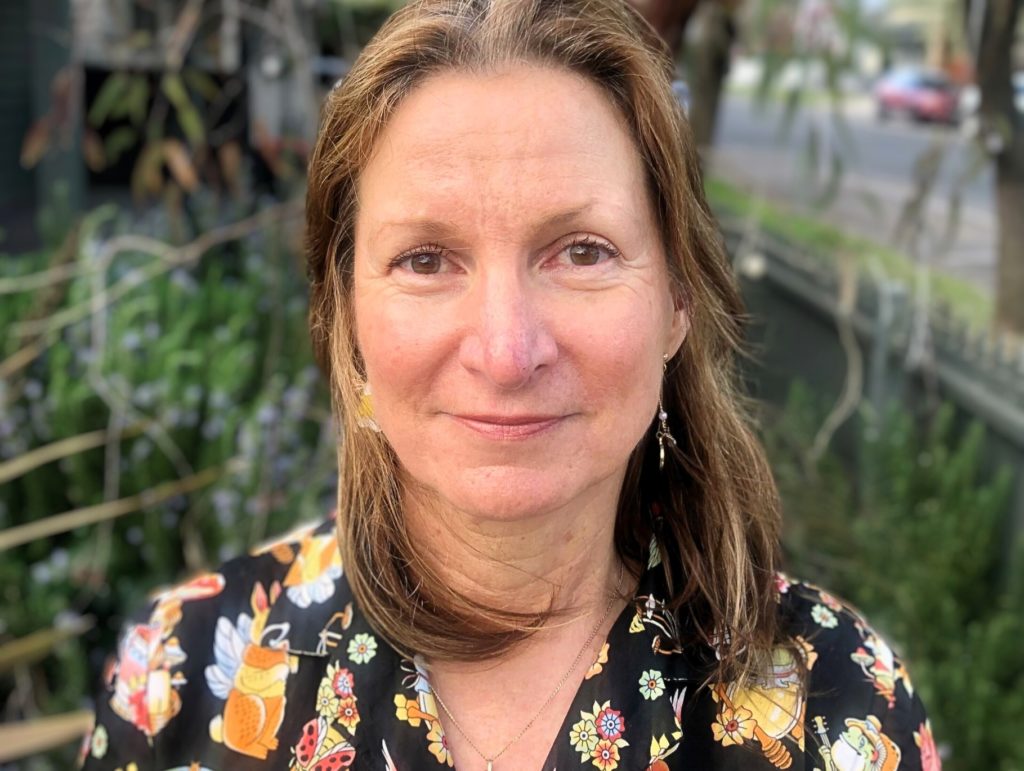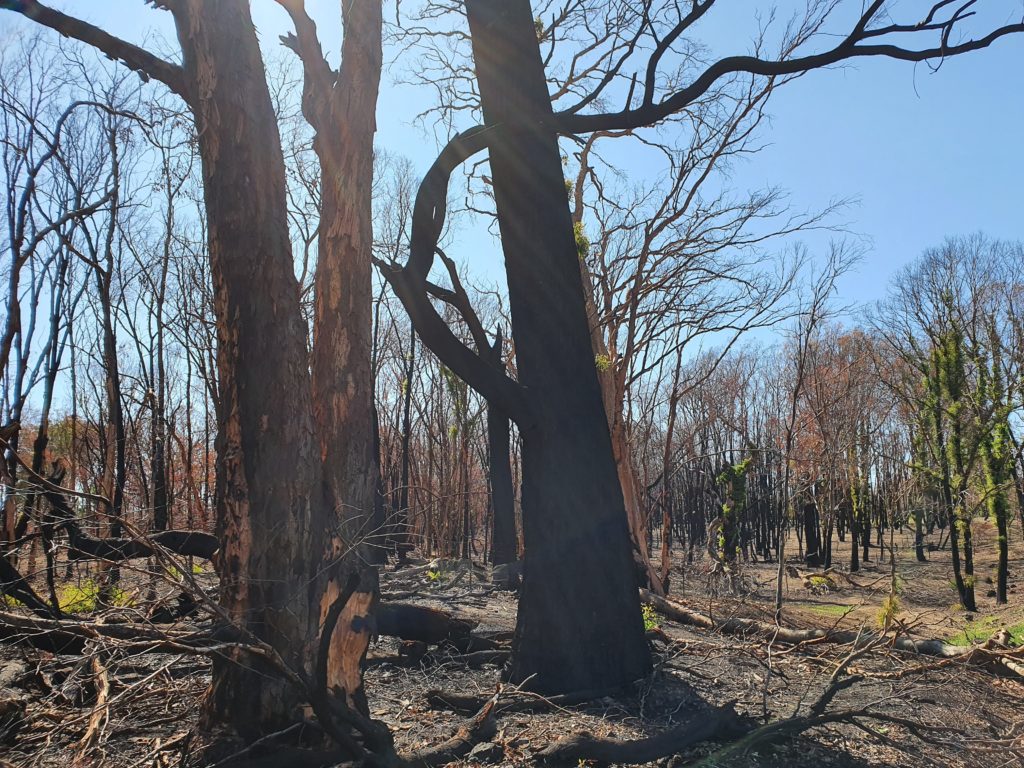Foundation for Rural & Regional Renewal (FRRR)
FRRR is delighted to announce the appointment of Alison Maclaren as Chief Financial Officer (CFO) and Business Operations Manager.

In this role, Alison will be responsible for managing FRRR’s finances, working closely with the Finance and Audit Committee to manage FRRR’s investment portfolio, and will also serve as FRRR’s company secretary. In addition, Alison will oversee the day to day running of the HR, IT and shared services functions.
Alison brings more than 25 years’ experience working across the not-for-profit, private and public sectors. Most recently, Alison was working in the pharmaceutical and health sectors but she also brings deep experience across many sectors having worked in the audit divisions of Deloitte and KPMG in Melbourne and Canberra.
FRRR CEO, Natalie Egleton, said that FRRR is delighted to be welcoming Alison to the team.
“Alison brings an unusual breadth of experience and a skillset to the table that will be highly valuable to FRRR. Her perspectives and insights from having worked in big firms, in the public sector and for an NFP community health organisation, coupled with her past operations management experience, mean that she is well qualified to support us as we enter the next phase of our growth.
“We’re thrilled to have her joining us – even in the short time that she’s already been with FRRR, it’s become clear that she will be a real asset to the team,” said Ms Egleton.
Ms Maclaren said that when she learned about this role, she knew it was the right move for her both personally and professionally.
“In my 20’s, I spent some time working in a refugee camp in Malaysia and the sense of purpose I gained from that experience has never left me. I loved my corporate career but I felt drawn to doing something that contributed more to society – a role that had social value as well as economic value. When I saw that FRRR was searching for a CFO, I knew it would be the perfect move for me, especially as I live locally. It’s growing and has a national remit, which means I still get to experience a lot of the challenges that I enjoyed facing in my corporate career but I also have the satisfaction of contributing to some really important work.
“I’m excited to be joining such a dedicated team and am thrilled to be helping FRRR to work towards their vision of a vibrant, resilient and revitalised remote, rural and regional Australia,” said Ms Maclaren.
Ms Maclaren graduated from Deakin University with a Bachelor of Commerce majoring in Accounting, Economics and Commercial Law (Awarded) and holds a Graduate Diploma in Accounting. She is a Chartered Accountant and Governance and Risk Specialist with the Chartered and Governance Institutes of Australia.
When not working, Alison enjoys spending time with her family on their small acreage property in Central Victoria, competing at equestrian events, skiing and hiking in the high country, and generally being active and adventurous.
Each quarter, we ask FRRR’s staff to share some of their observations from speaking with community leaders across the country, and reviewing grant applications. Below are a few comments from looking back on the first quarter of FY21.
It’s a universal truth that communities that have strong local leadership are best placed to thrive. However, offering support for particular elements or activities perceived to be needed can create a deficit inference and shame. A recent comment caused the team to pause and reflect: “Conversations about capacity are complex because people can feel shame about not having capacity.”
It’s a good reminder, as often offering funding for a particular activity can infer a judgement. It can imply that ‘it’ is absent or ‘not up to scratch’ in that community or not-for-profit organisation. At FRRR, we take a strengths based approach to granting. Language and wording matters and we are grateful to have such honest conversations with our community partners.
ANOTHER strong theme that continues to come through is the extent of the impacts of the summer bushfires, and the impact of COVID-19 on recovery. For example, in a recent application one community leader wrote: “The conversations revolved around the effect of running on adrenalin for the months before and after Christmas and the feeling of emptiness that followed. There was no time to come together before the community was once again under threat. The fires had denuded the landscape and when the rains came, many roads and properties were further affected by mudslides. The cleaning up started again. The normal community celebrations were delayed or cancelled as COVID-19 forced individual distancing. Somehow there needs to be a way of marking closure for this community, most of whom were volunteers in one capacity or another.”
COVID-19 and the ongoing drought are also affecting community groups’ fundraising capacity. For example, the Texas Kindergarten told us, “Annually we raise approximately $25,000 a year to help keep the Kindergarten open, pay staff, pay day to day expenses and purchase resources. Due to the ongoing effects of the drought individuals and businesses in our region are still really battling. It has become more and more difficult for our strong and resilient little community to help the Kindergarten financially. Now with COVID-19 we are unable to do any fundraising at all which will reduce our income this year dramatically. ”
Volunteer fatigue and decline is also becoming more apparent in various communities. For example, as Dirranbandi Arts Council, in Queensland’s far south west, explained “Our precinct has three separate buildings, which we wish to have open on a more regular basis for our whole community and travellers to access. But this is impossible as we just do not have the numbers. We have tried in the past to open just one of the buildings with the help of volunteers but this has become increasingly difficult as our volunteer base diminishes and those available age.” This presents new challenges and communities need to find new ways to engage volunteers, or source funds to pay for this service.
In other communities though, young people are stepping up and taking the reins. FRRR recently helped facilitate this blog from young community leader, Sam Kane, in which he tells the story about how he and some colleagues stepped up to get a pool in their community, and what they’ve gone on to do.
However, in the medium to longer-term, it’s likely that COVID-19 will have benefits for remote, rural and regional Australia. There are strong signs of population movement toward regional centres, as reflected by the Regional Australia Institute’s recent work on regionalisation. International travel restrictions too mean that more Australians will holiday at home. This is good news for regional communities, but it will also be critical for rural areas to be ready to take advantage of both relocation to the regions and tourism. Regional tourist attractions, remote working opportunities, community connectedness, and cultural vibrancy are competitive advantages that smaller rural areas can harness, however, foundational infrastructure and services are needed to retain and build momentum. Unfortunately, there is significant long-term underinvestment in community assets and local services which improve liveability and quality of life, increase attractiveness and competitiveness, and foster innovation and revitalisation. This is why areas such as community halls, childcare services, aged care services and youth engagement activities are just some areas that FRRR seeks to fund across many programs and regions. We need more funds that are broad and will have multiple flow-on effects in communities.
As the population in regional areas grows, there is more focus on issues relating to public transport. For example, Carroll is a small village within the Upper Namoi Cotton Growers Area. There is no bus service in the area and the residents are 20 km from services in the next town of Gunnedah. A local committee raised money to buy the bus, purely from local community fundraising and very generous support of many local businesses in Gunnedah and Tamworth. However, not all communities are able to do this, and we are seeing more and more requests to support this kind of service.
If you would like to know more, contact FRRR.


